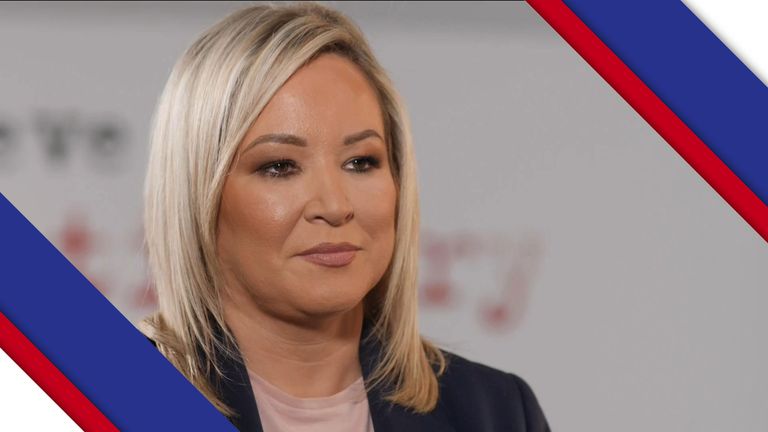All eyes are on Sinn Fein as counting takes place in the Northern Ireland Assembly election.
For the first time ever, an Irish nationalist party could emerge as the largest at Stormont.
For a century, one of the pro-British Unionist parties has held sway in the devolved government.
But the Democratic Unionist Party’s 20 years of dominance could be ended by the Brexit fall-out.
The party has been under pressure since the UK government agreed a border in the Irish Sea.
But the DUP is not conceding defeat and Northern Ireland elections are notoriously difficult to predict.
Verification of ballots begins at 8am and counting will start after that with results coming in throughout Friday and possibly into Saturday.
DUP leader, Sir Jeffrey Donaldson, built his election campaign around opposition to the Irish Sea border.
Speaking at his local polling station, he said: “Now is the moment to send a clear signal that the Protocol must be replaced by arrangements that restore Northern Ireland’s place fully within the UK Internal Market.”
The election comes amid speculation that the UK government plans to row back on the Protocol in the Queen’s Speech.
But Sinn Fein’s Stormont leader, and potential First Minister, Michelle O’Neill, refused to be drawn on that.
She said: “This is a hugely historic election. People are very in tune with that.
“We asked them to vote for a First Minister for all, someone who will stand up for stand up for everybody, someone who will turn up on day one for everybody.
“Someone who will invest in people to get them through the cost of living crisis. That’s what his election is about.”
Recent elections have seen a growing number of people choosing not to vote along sectarian lines.
Pre-election polls suggested the Alliance Party – in the middle ground – could benefit from another significant surge.
There are 239 candidates, a record 87 of them women, and 90 seats up for grabs.
Read more:
What is power sharing and why is the system used?
Sinn Fein deputy leader urges Irish government to prepare for a united Ireland
Five will be elected from each of the 18 constituencies using a form of proportional representation.
Each Member of the Northern Ireland Assembly is required to designate as Unionist, Nationalist or Other.
While the largest party nominates the First Minister, the largest designation chooses the deputy First Minister.
Unionists could veto the election of a Sinn Fein First Minister by refusing to enter power-sharing.
But a Sinn Fein victory would certainly raise the constitutional question of a referendum on Irish unity.






